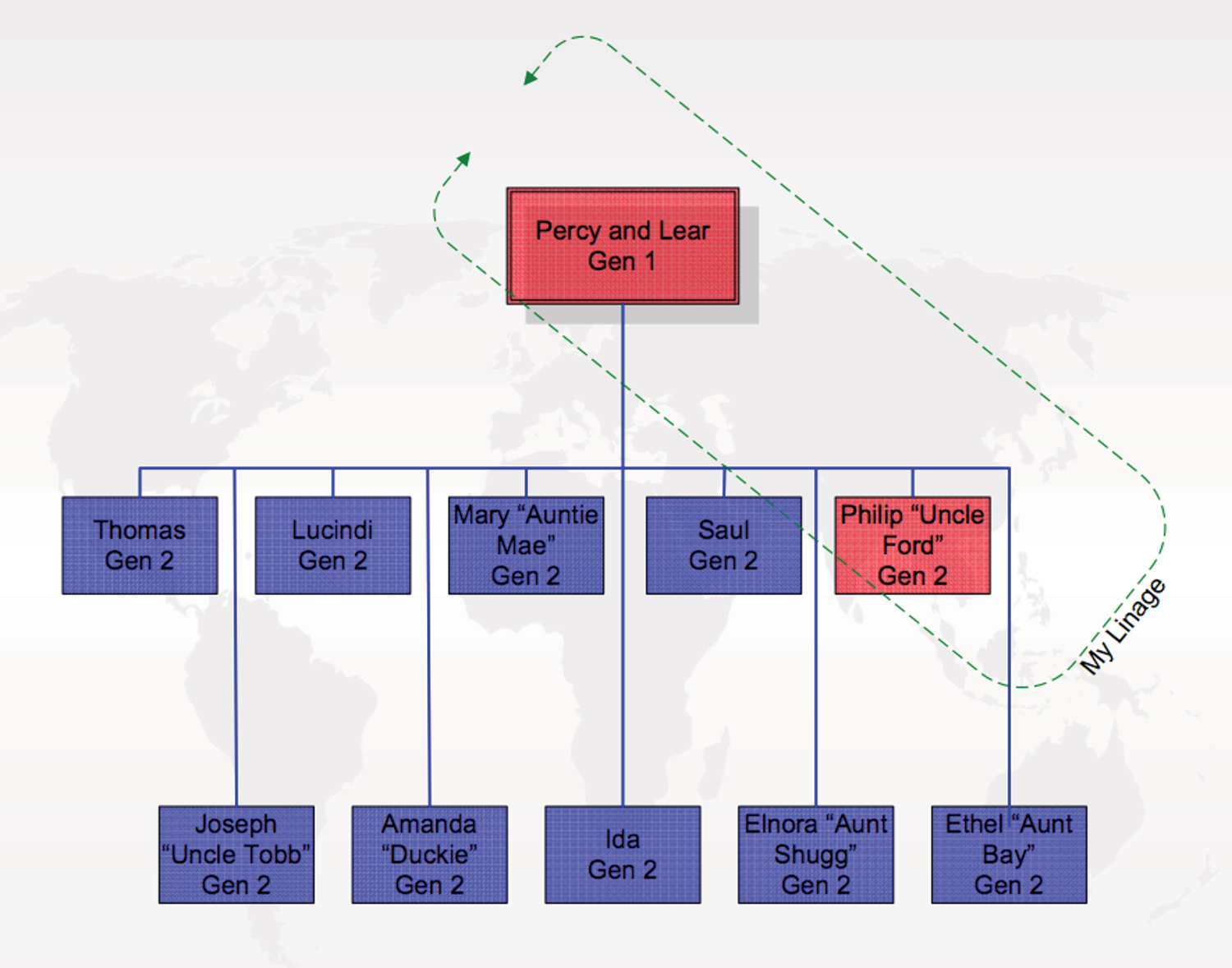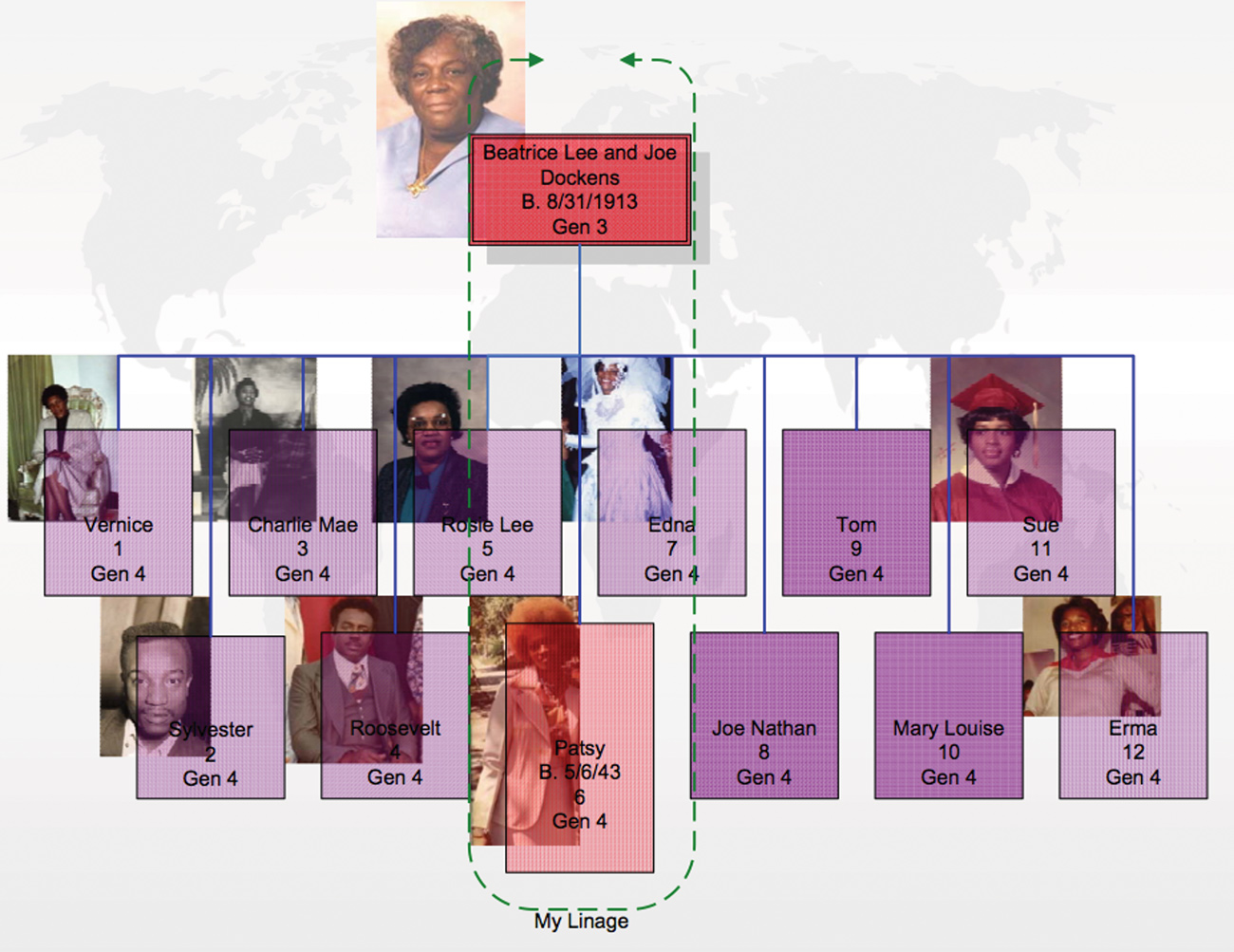By Patsy Williams
 As with many African Americans family, unearthing family history beyond the 20th century is extremely difficult. Records were not accurately kept; hence, the spoken history has been paramount in passing generational information forward. However with extensive research and contemporary resources, it is possible to find significant information about one’s family. Over the past several years, members of my family and I have tried to compile pieces of our history.
As with many African Americans family, unearthing family history beyond the 20th century is extremely difficult. Records were not accurately kept; hence, the spoken history has been paramount in passing generational information forward. However with extensive research and contemporary resources, it is possible to find significant information about one’s family. Over the past several years, members of my family and I have tried to compile pieces of our history.
According to family records and shared information, I’m able to trace my family ancestry back to Percy Lee who was borne a slave around 1853 in the Louisiana Delta. We still have significant research to determine further back than 1953. We do know that it was the Louisiana bayou because my mother told me so many stories from her grandparents. She would often talk about Bayou culture of voodoo and the belief in potions. She told us that older people would cast spells on younger people if they were disobedient to them and these people didn’t have to be a relative or parent. My mother always taught us to be kind and obedient to older people to avoid any thing of that nature, but not only that she believed that it was the right thing to do.
While she didn’t believe anyone could magically cast a spell on you but she would say be careful of taking anything edible from anyone. Further she would say to sweep dust out of the house after sundown because you would have bad luck. If you broke a mirror you must take it and throw it into the water and not look back after throwing it or that was seven years of bad luck. All of which are characteristics of my heritage.
Percy is the first generation of my ancestry that I’ll work from in this project. Very little is known about him other than he was married to Lear. Percy and Lear had ten children. Their ninth child, Philip Lee, would to be my great great grandfather. Based on information from family members, Percy was approximately forty years old when Philip, my grandfather was born.

The second generation is Philip Lee. Philip married Patsy Dawson and to that union were eight children, Beatrice, Saul, Elnora, Josephine, Percy, James, Jessie, and Leola. Beatrice, the third generation, is my mother. It was only during my adult years that I learned some of my uncles and aunts real name. For example James was called “W.” So, we always called him Uncle W and my Aunt Jessie for many years was called “LV.” It was only during my adult years that I learned that “W” was James and “LV” is Jessie.
My mother, Beatrice Lee was born on August 31, 1913 to Pasty and Phillip Lee. She had twelve children: Vernice, Sylvester, Charlie, Roosevelt, Rosie Lee, Patsy, Edna, Joe Nathan, Tom, Mary Louise, Sue, and Erma. Beatrice is often described as a winner. In her prime, as in her senior years, her strong personality affords her the Depression years in the 1930’s and following; African Americans had to have great character to prevail over racism, poverty, and oppression. She maintained all those characters…she was a Winner!
As with “Uncle W” and “Aunt LV”, Beatrice was known even to her children and even to her siblings as “ma’deah.” Ma’deah was a term of endearment to one’s mother.
Beatrice first attempt at love was in her marriage to Anderson Washington. She and Anderson had one daughter, Vernice. After divorcing Anderson, she later married Joe Dockens and together they had eleven children. Tragically, one of Beatrice children died at three months from birth. In December 1969, tragedy failed the Dockens family with the death of Joe Dockens. Nevertheless, Beatrice remained strong and lived with the same fervent energy until her death in 2003.
In closing with the my current generation and with my children and grandchildren, I have so many memories of growing up as a young African American girl up on the farm in Mississippi. As I shared in previous writings in this class, being the offspring of parents who were very poor and didn’t have the opportunity to acquire an education, the language in our home was broken English: Ebonics. However, we were encouraged to pursue education and to think and be strong. The same encouragement is what I provide to my three children and grandchildren. All of which are listed in the history attachment. The graphically representation of my history is reflected in the attached document.

